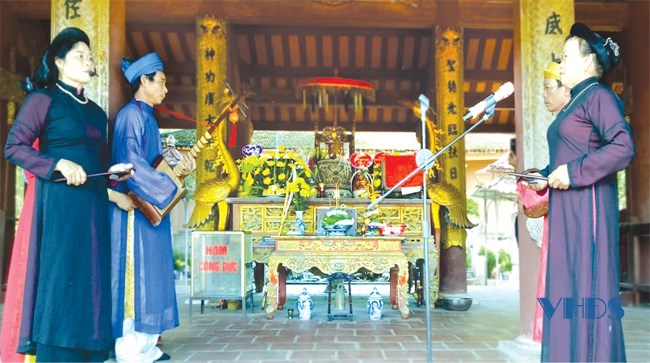
Recently, that precious tune has been officially recognized as a National Intangible Cultural Heritage, bringing great honor and reminding us of our responsibility to preserve and promote cultural values for future generations.
The heroic mark of Van Trinh land
The ancient land of Van Trinh, now in Quang Ngoc commune ( Thanh Hoa ), has been marked in history as an important defense line in the resistance war against the Yuan-Mongol army in the 13th century, and is also the cradle of a unique folk art form: Van Trinh opera.
Going back in time, the people of Quang Ngoc still recount that, during those difficult years, Prince Chieu Van Tran Nhat Duat - the sixth prince of King Tran Thai Tong - chose the land of Van Trinh as a strategic checkpoint thanks to its rugged jungle terrain.
This place became a gathering and hiding place for troops, a "shield" to prevent the Yuan-Mongol army from entering Thanh Hoa. Under his command, the Tran army and people fought fiercely many times, slowing down the enemy's advance, creating the premise for a general counterattack by both water and land routes, sweeping the invaders from the country.
When peace was restored, King Chieu Van Tran Nhat Duat was appointed as the Thanh Hoa District Governor, and the Van Trinh area became his fief. He worked with the people to reclaim land, establish villages, and expand fields. He not only left his mark as a strategic general but also as a cultural celebrity, honored by later generations with the title "The Founder of Tran Dynasty Music".
People still remember him for his musical talent, his mastery of music theory, and his ability to compose lyrics and dances. Every time he returned victorious from a battle or during happy festivals, he and his soldiers sang, danced, and offered incense to thank heaven and earth. The songs born in Van Trinh gradually became a folk ritual, a unique art form that later generations called "Van Trinh's singing and dancing".
From a royal court ritual, Hat nha tro has integrated into the daily life of the people. Farmers in Van Trinh can sing in response during their free time; on full moon nights, the sound of clappers and zithers resounds in the communal house yard, the sweet voice of female singers blends with graceful dances. Enlightened people and visitors who stop by are all stunned and captivated by the melody, and then reluctant to leave.
It is the blend of ritual and everyday life that has made Van Trinh's Hat Nha Tro survive for hundreds of years, becoming the cultural soul of the countryside along the Yen River, and an eternal pride in the hearts of every Quang Hop resident today.
Reviving the song from the people's heart
Like many other folk art forms, Van Trinh's Hat Nha Tro also went through a period of decline, at times seemingly falling into oblivion. However, with love for their homeland and responsibility for their ancestors' heritage, the people here were not willing to let that singing die out.
An important milestone was in 2006, when the Quang Hop commune government and professional agencies coordinated to invite Meritorious Artist Bach Van to open a training class.
The whole village eagerly registered to participate. Mrs. Hoang Thi Ky, the first director of the Van Trinh Theatre Club, recalled: “The elders put all their efforts into recreating each song and dance. As for us, the descendants, we have never performed before, only heard stories from our grandparents. But we all understand that this is a treasure left by our ancestors and we have the responsibility to preserve it.”
From that small class, a new generation was inspired with passion. In the early days of practicing singing, each dance move, each beat was still awkward, but everyone was patient, not afraid of hardship. Not only learning from the artisans, the people also researched and looked up more documents to understand more deeply about the heritage. Then the Van Trinh Singing Club was born, becoming the foundation to nurture the movement.
Up to now, under the leadership of Ms. Le Thi Thu - the main singer, the club not only maintains regular performances but also opens classes to teach the younger generation. Ms. Thu shared: "We teach singing, dancing, playing instruments and also tell the children historical stories related to King Chieu Van Tran Nhat Duat, so that they love their homeland more and appreciate the heritage".
Just like that, the sound of clappers, drums, wooden zithers and the singing voices of the women resounded in village festivals and cultural activities. Today, Van Trinh space still has mountains and rivers, and in the midst of everyday life, the heritage has revived from the hearts of the people. An even greater joy came on April 26, 2024, when the Minister of Culture, Sports and Tourism signed a decision to recognize "The folk performing art of Hat Nha Tro Van Trinh" as a National Intangible Cultural Heritage.
That day, the whole village held a festival. The elderly were filled with joy and sadness, the young were excited and proud. Because after many years of cultivating and preserving, the heritage had been recognized. However, more than joy, that title also reminded us of a long-term responsibility: How to make the song resonate forever for the future.
Because Van Trinh's singing is both a folk art form and a cultural underground that flows throughout heroic history and contemporary life. Over the centuries, from the days of fighting the enemy with the Tran Dynasty's army and people, to when it became a song imbued with love for the countryside, Van Trinh's singing has proven its strong vitality.
Now, in the modern life, each beat, each melody, each movement of the singers not only arouses pride in the homeland, but also proves that: Heritage only truly lives when preserved and continued by the people. And in the Nha Tro singing resounding in the land of Quang Hop, we seem to hear the echoes from thousands of years ago of a resilient land, of love for culture and of the desire to preserve our roots.
Source: https://baovanhoa.vn/van-hoa/tu-lich-su-hao-hung-den-giai-dieu-vuot-thoi-gian-163692.html





![[Photo] General Secretary To Lam attends the 80th anniversary of Vietnam's diplomacy](https://vphoto.vietnam.vn/thumb/1200x675/vietnam/resource/IMAGE/2025/8/25/3dc715efdbf74937b6fe8072bac5cb30)









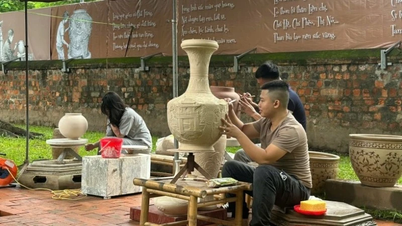











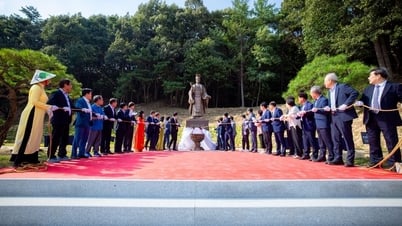
























































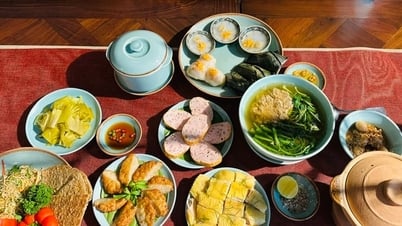


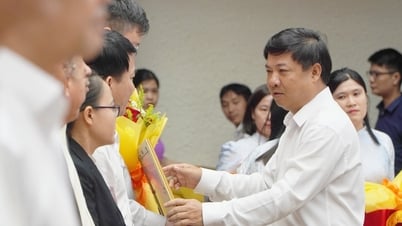











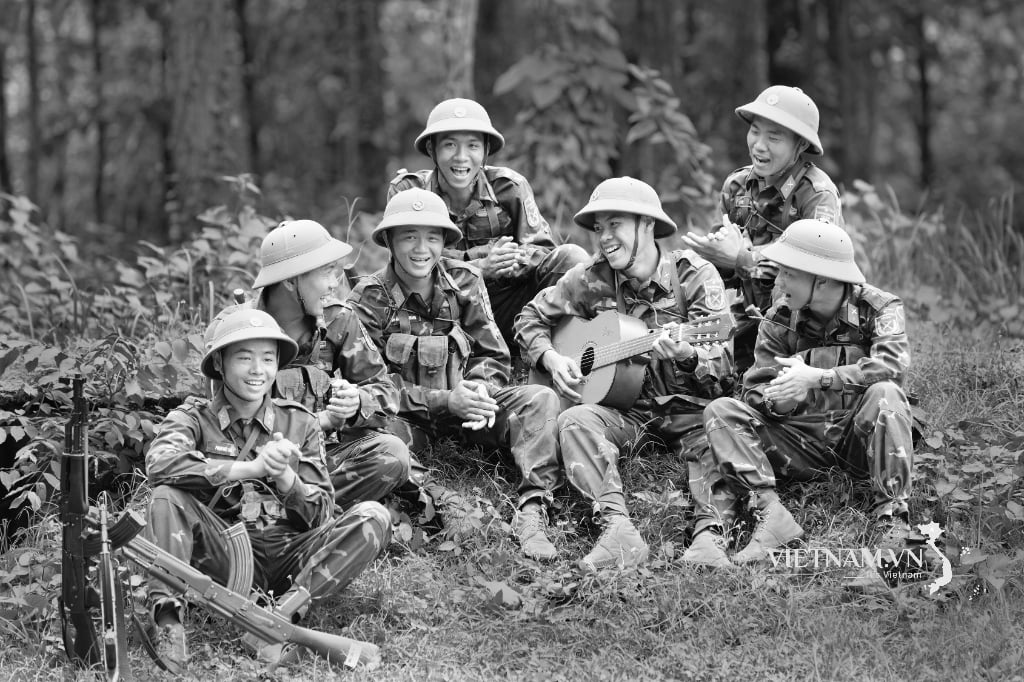
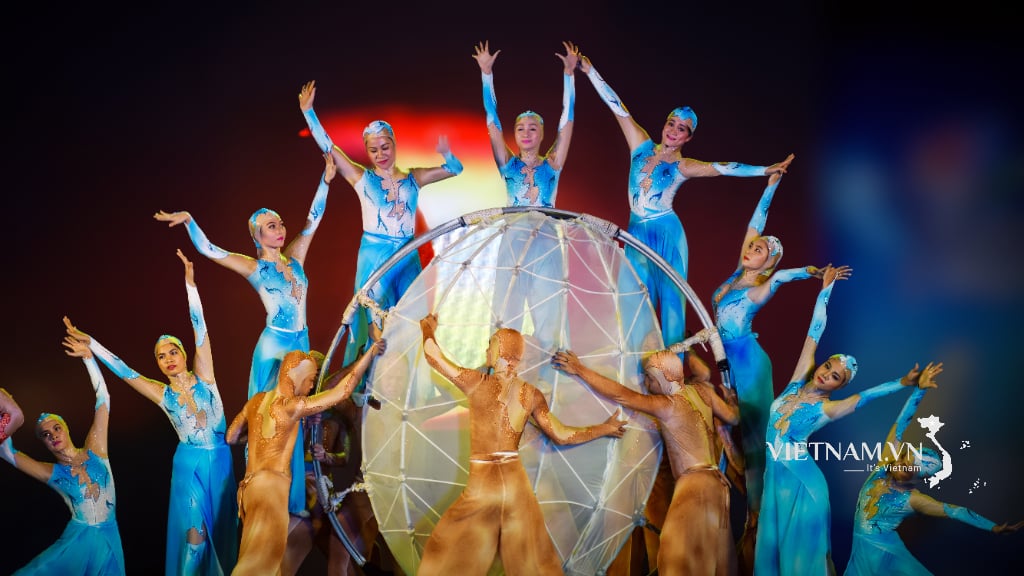

Comment (0)